
by Sandra Gulland | May 1, 2009 | Adventures of a Writing Life, Recommended Books, Movies, Podcasts, etc. |
Today was declared “Buy Indie Day” in support of independent bookstores—a wonderful excuse to spend more money on books. Today I bought at the wonderful Nicholas Hoare Bookstore on Front street in Toronto:
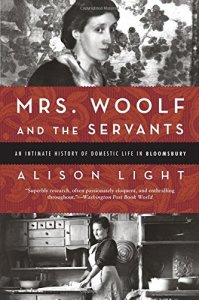
Mrs Woolf & the Servants, by Alison Light (about Virginia Woolf‘s relationship with her servants—delightful, and mildly research-related);
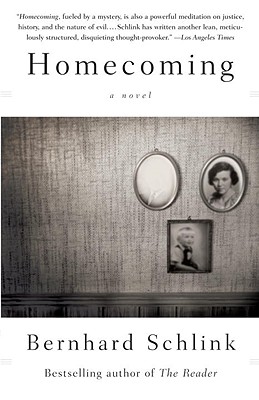 Homecoming, by the wonderful German writer Bernhard Schlink, author of The Reader (which I just read);
Homecoming, by the wonderful German writer Bernhard Schlink, author of The Reader (which I just read);
Grimoires: a History of Magic Books, by Owen Davies—research for The Next Novel.
I also ordered The Last Prince of the Mexican Empire by C.M. Mayo, who I’ve mentioned several times on this blog.
I’m also, now, the proud owner of a Toronto Public Library card, and brought home The Thirteenth Tale by Diane Setterfield,
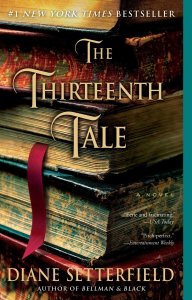 .
.
I’ve so many good books to read, I hardly know which way to turn.

by Sandra Gulland | Dec 7, 2008 | Baroque Explorations, On Research, Recommended Books, Movies, Podcasts, etc., The Shadow Queen |
{Above: The cover of the Sandra Gulland INK edition of The Shadow Queen, in which Madame Voisin is an important character.}
I have been delving into the Affair of the Poisons again, trying to understand the roles of Athénaïs (Madame de Montespan), and her maid Claude des Oeillets in this sordid affair. In sorting it out, I first revisited Anne Somerset‘s The Affair of the Poisons; Murder, Infanticide & Satanism at the Court of Louis XIV, an excellent book, in my opinion, with clear and specific references.
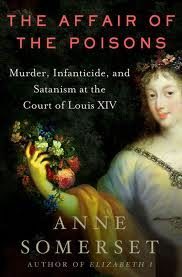
Most of Somerset’s information is from the Bastille Archives (Archives de la Bastille), where one can read the word-by-word interrogations of the hundreds of people arrested for poisoning, witchcraft and infanticide. Through the French on-line library — Gallica — I’ve been able to download all seven volumes, and so have them on my computer. In this way, I’ve been able to check Somerset’s specific references by going to the volume and page cited.
This, in turn, led me back to Gallica, on a search for more information about Villedieu, Claude’s friend who was convicted and imprisoned in a convent for the rest of her life. I was initially intrigued because I thought this might be Mlle. de Villedieu, a writer of erotic semi-autobiographical fiction, but no: it’s Madame de Villedieu, the spurned wife of the man the erotic novelist ran off with. Tant pis.
Madame de Villedieu’s testimony indicates that she’d known Claude for some time, and that Claude had been to see the “witch” Madame Voisin at least fifty times. What strikes me as curious is that Madame Voisin insisted — even under horrifying torture, even when her death by burning was certain — that she’d never laid eyes on Claude, much less on Claude’s employer Athénaïs (the Sun King‘s mistress and mother of several of his children).
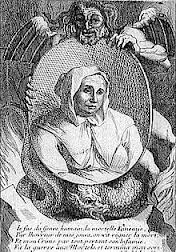
Madame Voisin.
Why the protection? Voisin was spilling the beans on practically everyone else at court — why not a word about Athénaïs and her maid?
Or is Villedieu’s testimony false? That seems unlikely to me, although she might well have been quite angry to find herself in prison while her friend Claude remained free, courtesy of the King’s protection.
It’s quite an intriguing Affair, and I suspect I’ll be lost in it for some time.

Afternote: all 18 (or more?) volumes of the Archives de la Bastille can be found on Gallica here, available for download.
My eventual conclusion regarding the mystery of Claude and Madame de Villedieu is that the woman Villedieu went to see Voisin with had adopted Claude’s name (for likewise mysterious reasons). Apparently Villedieu, when pressed, described this so-called Claude in terms that were definitely not Claude.
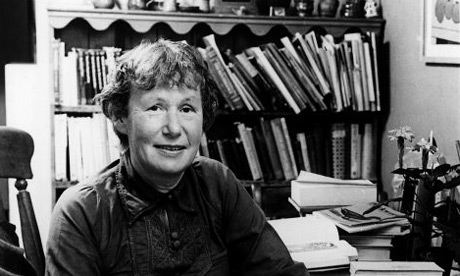
by Sandra Gulland | May 20, 2008 | Adventures of a Writing Life, Recommended Books, Movies, Podcasts, etc. |
Penelope Fitzgerald‘s Offshore and The Blue Flower are on my list of all-time great novels, but what I love best about her is that she didn’t start writing until her late-50s.
To quote from the Guardian book blog, “The quiet genius of Penelope Fitzgerald”:
Fitzgerald was a wonderful writer, and since her death in 2000 her reputation has continued to soar. Despite a late start (she began writing her first novel when she was almost 60, composing it as a diversion for her dying husband), she gained immense popular and critical acclaim during the last 20 years of her life. She won the Booker (for Offshore), and became the first non-American to win the National Book Critics’ Circle award (for The Blue Flower, which many consider her masterpiece). In the eight years since her death, an increasing number of readers—including AS Byatt, Frank Kermode and Hermione Lee—have begun speaking of her as the greatest English novelist of recent decades.
I heard Penelope Fitzgerald interviewed by Eleanor Wachtel on the CBC radio show, Writers & Company. I was struck by her account: her first novel was a mystery. Accepted for publication, her editor asked her to cut it by half. She did so, and continued to do so for every book she wrote.
A good lesson, that.

 Homecoming, by the wonderful German writer Bernhard Schlink, author of The Reader (which I just read);
Homecoming, by the wonderful German writer Bernhard Schlink, author of The Reader (which I just read); .
.





